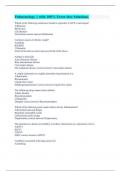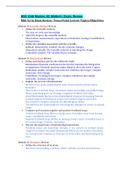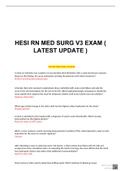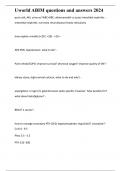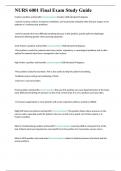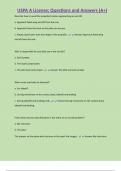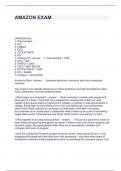Summary
Summary Grade 11_Hospitality Studies Summaries
- Course
- Institution
Discover the learning tool for Grade 11 Hospitality Studies! Our colorful and visually appealing summaries are based on the prestigious FOCUS textbook (DBE approved) and are designed to enhance your learning experience. Product Highlights: Comprehensive Content: All important concepts and key...
[Show more]





